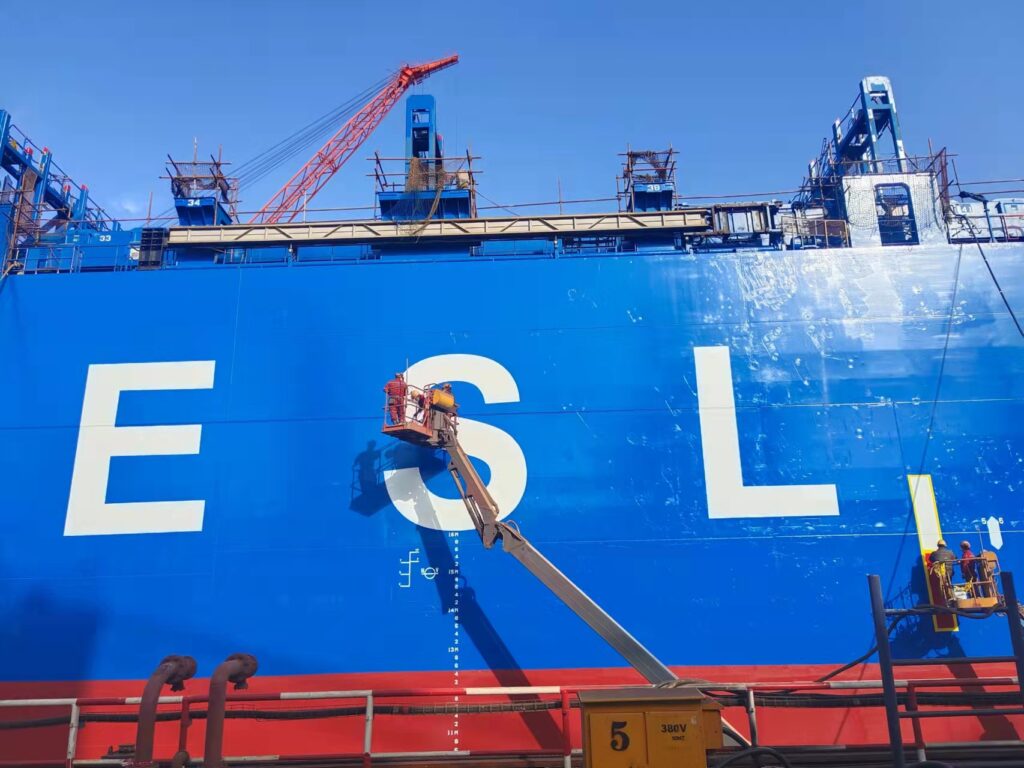Further optimisation of fleet reduces 20% of CO2 emissions in majority of the ESL operated fleet.
ESL is committed to achieving global climate goals and promoting sustainable trade growth. After a comprehensive review of the entire fleet was conducted, an extensive optimisation program encompassing several key aspects was developed. Following the implementation of various changes, we have achieved a 20% reduction in carbon emissions to over 75% of our fleet.
Upgrading vessel performance
A crucial aspect of the program involved a re-design of our vessels’ propellers. In collaboration with designers and German propeller experts from Mecklenburger Metallguß GmbH (MMG), we and the Peter Döhle Schiffahrts-KG group jointly developed and installed upgraded propellers on each ship. The utilisation of these propellers yielded a significant improvement in overall flow and efficiency. Carbon emissions have been reduced by up to 10% from the propeller renewals, as confirmed by computational fluid dynamics (CFD) and large-scale measurements.

In addition, to minimise emissions associated with using typical paints such as copper-based ones which are also toxic to aquatic life, we made the switch to silicon-based paints. These are verified to average an 8% reduction in fuel consumption across the tested ships’ speed profiles. More durable and less detrimental to the environment, these paints reduce the drag of our ships and further reduce greenhouse gas emissions by improving fuel efficiency.
Improving existing processes
On top of physical changes to our ships, enhanced operational procedures have also been streamlined, focused on optimal routings based on real time weather data, better planning of the ships and trim optimisation. With these measures in place, carbon emissions have been further reduced by 2%, contributing to the overall 20% decrease.
To stay on track with sustainability goals, we closely monitor our vessels’ operations and carbon footprint through the continued use of Nautilus Labs’ Vessel Optimisation AI Technology, a centralised technology platform that allows the tracking and improvement of fleet performance and efficiency. At the end of 3Q23, our fleet’s savings fuel savings year-to-date was recorded at close to 700 metric tons (MT), the equivalent of around 2,400MT of CO2.
Looking ahead to a sustainable future for shipping
Environmental sustainability remains a priority at ESL with the above being just a few steps in our journey towards a more sustainable future. We are actively exploring additional solutions to further minimise its environmental impact.